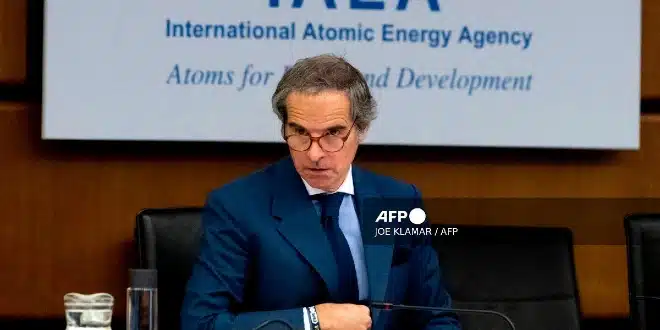Inspectors from the International Atomic Energy Agency (IAEA) have returned to Iran for the first time since Israeli and US strikes targeted the country’s nuclear facilities earlier this year. The announcement marks a tentative step toward restoring cooperation between Tehran and the UN’s nuclear watchdog, which had been frozen following the June conflict.
IAEA Director General Rafael Grossi confirmed the move during an interview with Fox News, saying: “Now the first team of IAEA inspectors is back in Iran, and we are about to restart.” Grossi acknowledged the challenges ahead, noting that “many facilities” were affected during the strikes, and discussions are ongoing over how to resume oversight effectively.
Fallout From June’s War
Iran suspended collaboration with the IAEA after a 12-day war with Israel, accusing the agency of failing to condemn the attacks on its nuclear infrastructure. The conflict—sparked by an unprecedented Israeli strike—also disrupted Iran’s indirect negotiations with the United States on nuclear issues and strained Tehran’s relationship with international monitors.
Israel has defended its actions as necessary to prevent Iran from pursuing nuclear weapons, an allegation Tehran has consistently denied. The strikes deepened mistrust, with Iranian officials suggesting that the IAEA’s silence indirectly legitimized the attacks.
Diplomatic Push in Geneva
While inspectors return to Iranian soil, parallel diplomatic efforts continue. On Tuesday, Iranian officials met with representatives from Britain, France, and Germany in Geneva in an attempt to salvage parts of the 2015 nuclear agreement. The so-called E3 have threatened to trigger the “snapback mechanism,” a clause that would reinstate broad UN sanctions, if Tehran does not reverse course on its nuclear program.
Iran’s deputy foreign minister, Kazem Gharibabadi, urged European governments to show patience. “It is high time for the European trio to make the right choice and give diplomacy time and space,” he said after the talks. This was the second round of meetings with European diplomats since June’s hostilities ended.
The Shadow of the 2015 Nuclear Deal
The 2015 Joint Comprehensive Plan of Action (JCPOA), designed to curb Iran’s nuclear activities in exchange for sanctions relief, has been hanging by a thread since 2018, when then-US President Donald Trump withdrew Washington from the pact and reimposed sweeping sanctions. Since then, efforts to revive the deal have repeatedly faltered.
With inspectors back on the ground and talks resuming in Geneva, the path forward remains uncertain. Tehran is seeking to avoid renewed sanctions while maintaining leverage in negotiations, while the IAEA is pressing to restore full monitoring access. Whether this fragile restart can lead to broader diplomatic progress may hinge on how both Iran and its counterparts navigate the next critical weeks.


